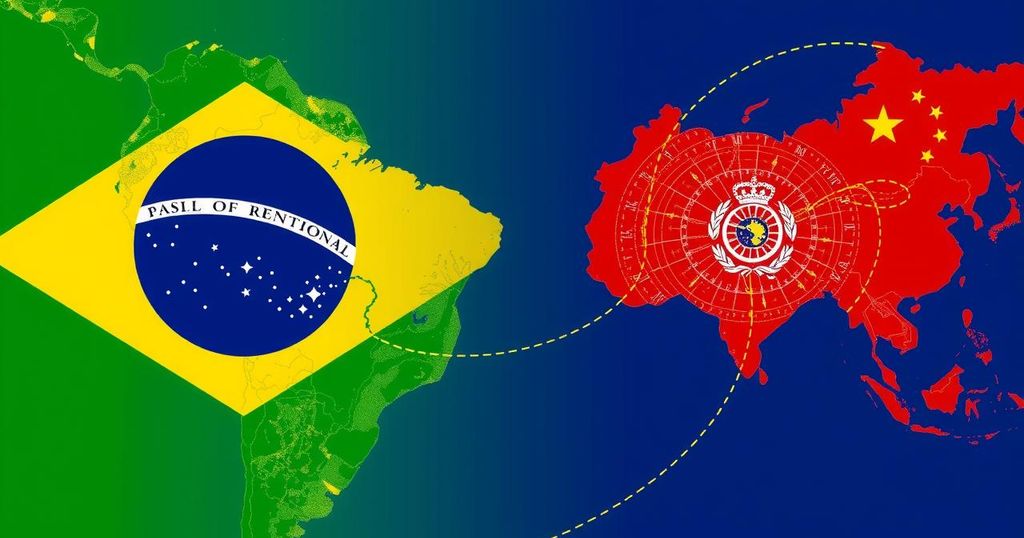Brazil has opted not to formally join China’s Belt and Road Initiative but remains interested in exploring synergies within its framework. Celso Amorim’s comments indicate internal divisions within the government yet signal an intent to maintain strong ties with China while seeking to align Brazil’s infrastructural needs with available investment opportunities.
Brazil has recently expressed its stance regarding China’s Belt and Road Initiative (BRI), a vast global infrastructure development strategy. According to Celso Amorim, special presidential adviser for international affairs, Brazil will not formally join the BRI. However, he emphasized that Brazil aims to find shared opportunities within the framework of the initiative, particularly in aligning its own infrastructure projects with the funds that the initiative provides. This nuanced position illustrates an ongoing internal debate within the Brazilian government about the potential benefits and risks of deeper involvement with China, its largest trading partner. The Brazilian government had been anticipated to announce its participation in the BRI during an upcoming visit by Chinese President Xi Jinping. However, the public declarations made by Mr. Amorim and other Brazilian officials suggest a more cautious approach, indicating that while collaboration is welcome, formal commitment to the initiative is not being pursued at this time. The Brazilian administration seeks to safeguard its national interests while maintaining its rich economic relationship with China, thereby reflecting a careful balancing act in foreign policy.
China’s Belt and Road Initiative has been pivotal in reshaping global infrastructure and investment patterns since its inception over a decade ago. It encompasses numerous projects aimed at enhancing connectivity between countries across Asia, Europe, and beyond. For Brazil, participating in such a scheme presents both opportunities for economic development and concerns over the implications of deepened economic dependence on China. Brazil’s current position reveals the complexities of navigating these dynamics while striving for strategic partnerships that align with its developmental objectives.
In conclusion, Brazil’s decision to remain open to collaboration with the Belt and Road Initiative without officially joining it underscores a strategic approach that prioritizes national interests and cautious engagement. While the potential for synergy exists, the Brazilian administration appears committed to maintaining its independence and evaluating opportunities that align with its infrastructure goals. This careful maneuvering highlights the intricate relationship between Brazil and China as Brazil seeks sustainable development pathways.
Original Source: www.scmp.com






